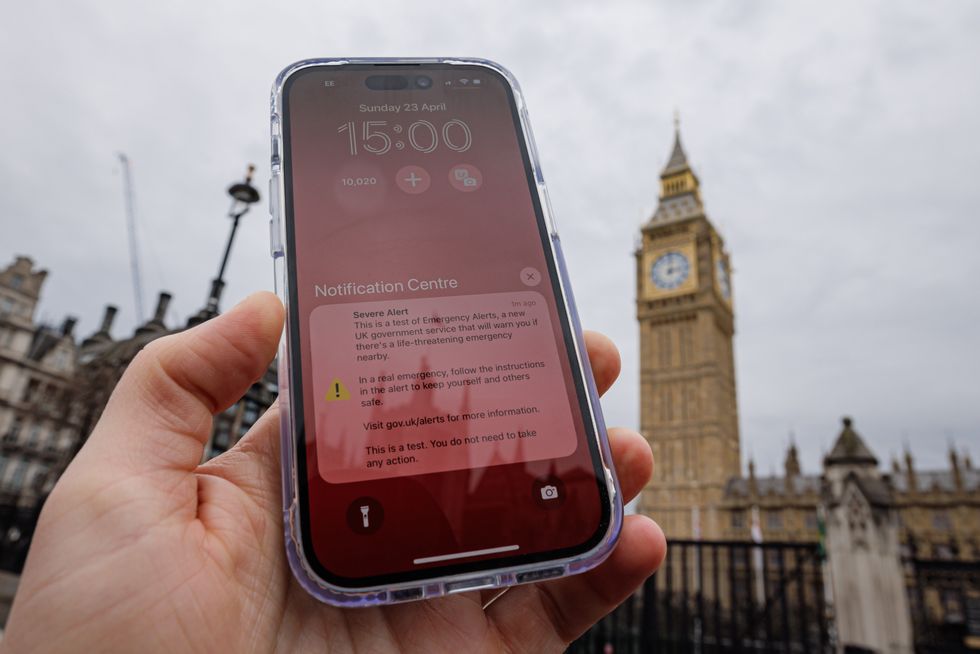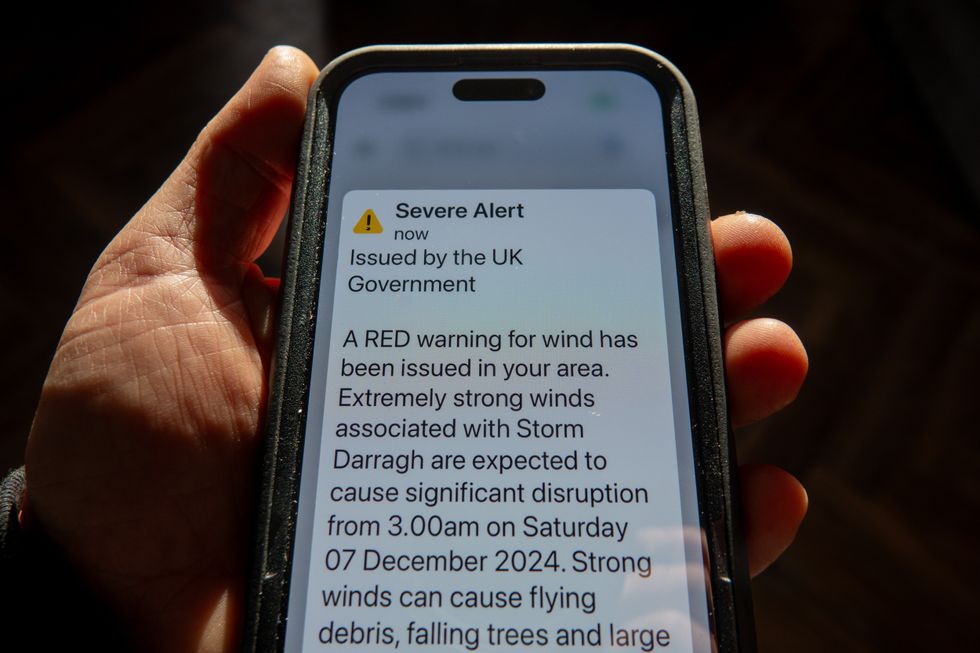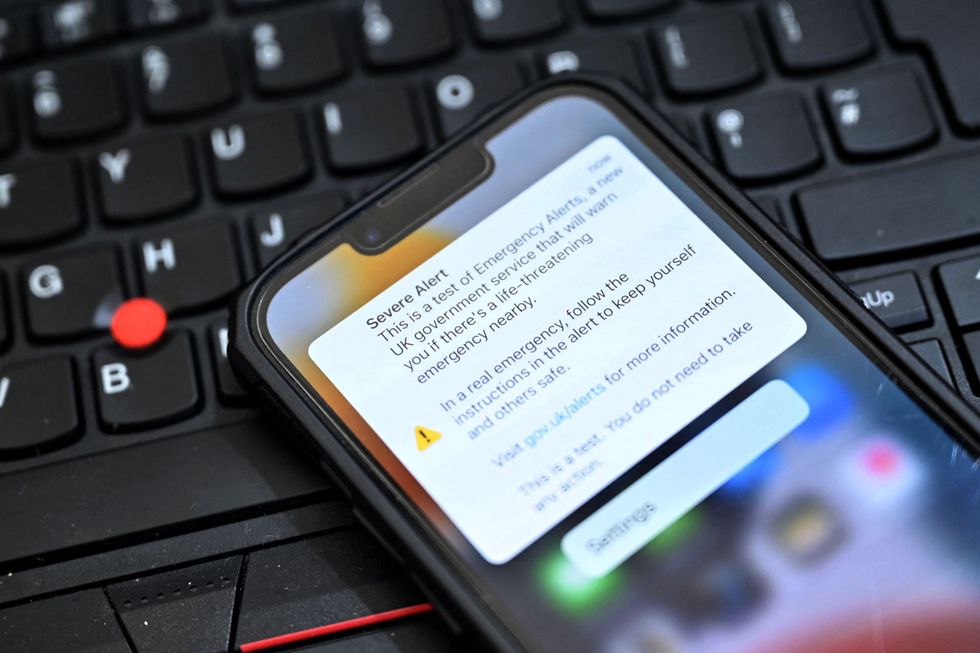Emergency alert to be sent to 87 million mobile phones in Britain as ministers launch 'resilience' plan

UK Emergency Alert How do you turn off the Government's mobile alert |
GB NEWS

The first alert in the UK was sent out in 2023
Don't Miss
Most Read
Trending on GB News
An emergency alert is set to be sent to 87 million mobile phones across Britain.
The Emergency Alert System (EAS), which will sound on September 7, is used to warn of potential danger nearby, including extreme weather.
Mobile phones will vibrate and emit a loud siren sound for approximately ten seconds, even if they are set to silent mode, with a message also appearing on phone screens.
The upcoming test, which will take place at 3pm, is the latest in the Government's commitment to regularly testing the system to ensure it works optimally and familiarises the public with the alerts.

An emergency alert is set to be sent to 87 million mobile phones in Britain
|GETTY
The first alert in the UK was sent out in 2023.
Since then, five alerts have been sent, including during major storms when lives were at risk.
Other countries, such as Japan, the USA and mainland European nations, have implemented similar warning systems.
The UK Government aims to spread awareness of the scheme ahead of the national test.
LATEST DEVELOPMENTS:

Around 3.5 million people across Wales and the South West of England received an alert during Storm Darragh
|GETTY
The public information campaign will also feature products in British Sign Language.
A red weather warning alert, sent to approximately 4.5 million mobile phones in Scotland and Northern Ireland, was issued during Storm Éowyn in January of this year, marking the largest-ever use of the system in the UK.
Around 3.5 million people across Wales and the South West of England received an alert during Storm Darragh, which killed two people, in December 2024.
Other activations have included when an unexploded World War II bomb was discovered in Plymouth and during flash flooding in Cumbria and Leicestershire.

The British Government aims to spread awareness of the scheme ahead of the national test
|GETTY
Speaking on the plan, Pat McFadden, Chancellor of the Duchy of Lancaster, said: "Emergency Alerts have the potential to save lives, allowing us to share essential information rapidly in emergency situations including extreme storms. Just like the fire alarm in your house, it’s important we test the system so that we know it will work if we need it.
"This test is part of our action plan to build resilience across the whole country and secure the nation under the Plan for Change - from the £1 billion we’re investing in a new network of National Biosecurity Centres to the £4.2 billion we’re investing to build a new generation of flood defences to protect local communities.”
Tests come as the Government publishes a Resilience Action Plan with new steps to "secure the country and deliver the Plan for Change".
The announcements come after the release of the National Security Strategy last month, which outlined the most significant and prolonged rise in national security spending since the Cold War.
More From GB News










